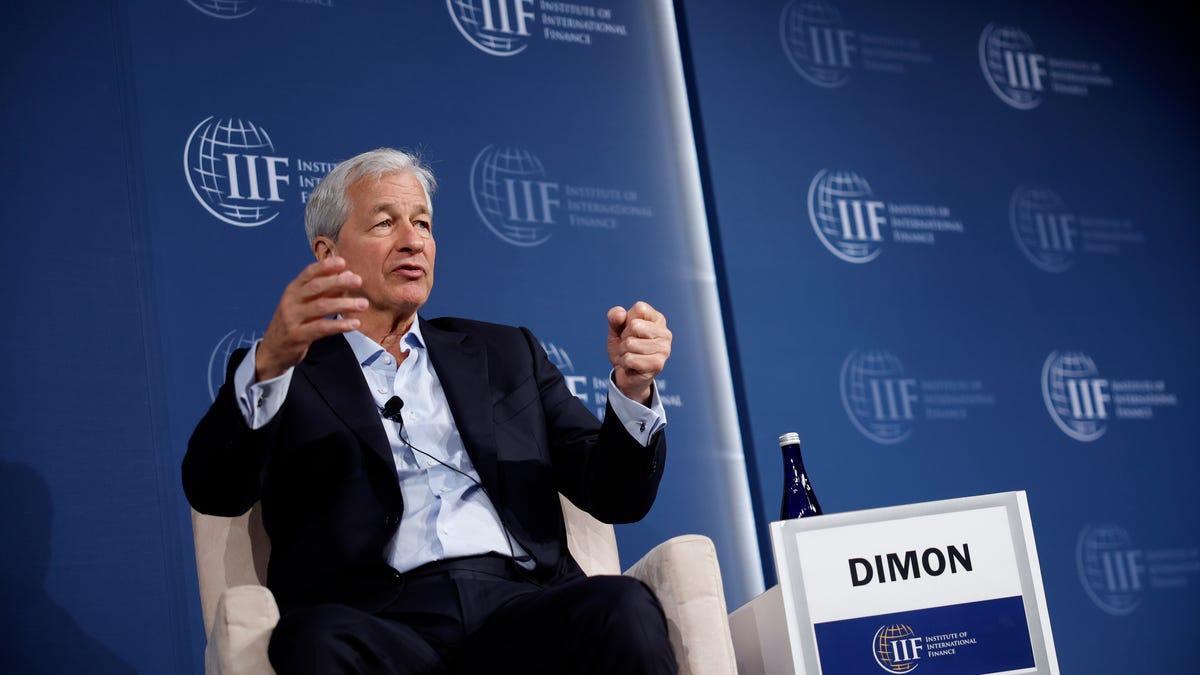JPMorgan's Jamie Dimon Predicts AI Will Reduce Workweek to 3.5 Days While Maintaining Employment
4 Sources
4 Sources
[1]
Jamie Dimon predicts AI will shorten the workweek : 'My guess is the developed world be working three-and-a-half days a week' | Fortune
When Jamie Dimon makes predictions, the C-suite pays attention. And at the America Business Forum in Miami on Thursday, the JPMorgan Chase CEO sketched a provocative horizon line: AI will optimize our work schedules within our lifetime. "It's going to affect every application, every job, every customer interface," Dimon said. "My guess is the developed world will be working three-and-a-half days a week in 20, 30, 40 years, and have wonderful lives." He isn't speaking in hypotheticals. Dimon has turned JPMorgan into a live-fire AI lab. Roughly 2,000 people are building AI systems; about 150,000 employees use large language models every week on internal documents; and the bank has hundreds of use cases running, from fraud detection to legal review, reconciliations, and marketing optimization. Dimon's three-and-a-half-day forecast hinges on that cumulative productivity. As AI absorbs routine work, the same output may require fewer hours. But he's adamant the transition won't be painless. "It will eliminate jobs. People should stop sticking their heads in the sand," he warned at Fortune's Most Powerful Women conference, arguing companies and governments must plan for retraining, income assistance, redeployment, and, in some cases, early retirement to avoid a social backlash. The bank, he said, is building with that redeployment mindset. He also stresses AI's economics aren't the same as the internet's. The buildout is both capital- and power-hungry; some hyped projects "won't get the power they need," he said. Investors should underwrite data-center and AI infrastructure deal-by-deal, he added, noting who has revenue, who takes construction and technology risk, what happens if the chips or plants don't perform -- rather than buying the theme wholesale. In his words: Some AI efforts will be "in a bubble," but in total, the technology "will probably pay off." Dimon has a consistent message to operators: Stop overintellectualizing model theology and deploy. "Use it... in any business," he said. JPMorgan is even running AI master classes for senior managers after finding many leaders at the company simply didn't know what current tools could already do (One reaction Dimon quoted was: "I didn't know it could read 100,000 documents."). All in all, the future of work may be shorter in hours but richer in value, if leaders do the hard parts now. That means modernizing data so AI can actually use it ("We spend a lot of money getting data into the proper format... We're not measuring how much it costs," Dimon said), investing through the power constraints, and building humane off-ramps for roles that will disappear. Dimon's bet is that what machines remove, well-led institutions can remake: And that's how you get to a three-and-a-half-day week without blowing up the social contract. "You know, technology has downsides. It's used by bad people," Dimon said at the Forum. "But embrace it."
[2]
Jamie Dimon's bold AI forecast: JPMorgan CEO predicts workweek will shrink to 3.5 days, says 'People should stop...'
JPMorgan CEO Jamie Dimon has predicted that AI will shorten workweeks, adding that technology should be embraced. He was speaking at the American Business Forum, a Saudi Arabia-backed summit in Miami. Jamie Dimon emphasised that AI is going to affect every job and companies must prepare a plan for redeployment. JPMorgan Chase CEO Jamie Dimon painted a picture about the Artificial Intelligence (AI), saying that AI will optimize our work schedules within our lifetime. The American businessman said that AI is going impact to every job and in the developed world there will be three and a half days a week in the coming years, reports Fortune. "It's going to affect every application, every job, every customer interface," Dimon said. "My guess is the developed world will be working three and a half days a week in 20, 30, 40 years, and have wonderful lives." "You know, technology has downsides. It's used by bad people," Dimon said at the forum. "But embrace it." Jamie Dimon was speaking at the America Business Forum in Miami on Thursday. "It will eliminate jobs. People should stop sticking their heads in the sand," he warned. Jamie Dimon argued that companies and governments must sketch out a plan for retraining, income assistance, redeployment, and, in some cases, early retirement to avoid a social backlash. The bank, he said, is building with that redeployment mindset. He also cautioned that AI's economics differ from those of the internet, noting that the technology is both capital- and power-intensive. Some overhyped projects "won't get the power they need," he said. Investors, he advised, should evaluate each data center and AI infrastructure project individually -- considering revenue, construction risks, and performance -- rather than investing broadly in the AI trend. While some AI projects may be "in a bubble," he said, overall, the technology "will probably pay off." ALSO READ: JPMorgan's Jamie Dimon takes a U-turn after Zohran Mamdani's stunning NYC win, says 'If I find it productive...' JPMorgan Chase and Co CEO Jamie Dimon has said bank's workforce is likely to remain steady or even grow as artificial intelligence becomes more deeply embedded in its operations. His comments counter the widespread concern that automation will cause massive job losses across industries. Many tech giants such as Amazon, Meta, Microsoft and others lave laid off thousands of employees owing to their huge investments in AI and as a part of restructuring their strategies. Speaking to CNN, Dimon explained that JPMorgan's focus is on using AI to enhance efficiency rather than reduce staff numbers. "We always redeploy," he said, referring to employees whose roles are reshaped by new technology. While acknowledging that AI will reduce workloads in several areas, he emphasised that "it will also create jobs," particularly in data, analytics and technology infrastructure. ALSO READ: Jamie Dimon explains how JPMorgan's headcount will be steady or even increase despite US tech giants' layoff amid AI boom At a time when several tech giants are announcing layoffs, JPMorgan, the largest US bank by assets, has adopted a different stance. Dimon told CNN that although the broader labour market has weakened, it is uncertain whether that trend will persist. "There has been a weakening in the broader labour market," he said, adding, "The economy is still chugging along. It may have gotten a little bit weaker, but right now it's still kind of in that soft landing." ALSO READ: JPMorgan CEO Jamie Dimon's fiery response at employees' work from home petition, says 'not making fun of Zoom but...' Appreciating AI's potential, Dimon called chipmaker Nvidia an "unbelievable company," adding that the technology is "real" and capable of making firms "hugely productive." He compared today's AI boom to the internet revolution, saying, "They may not all pay off, but you did get Google, Facebook, YouTube, part of Microsoft, Amazon, Salesforce... Yeah, there was a little bit of a bubble in there." Dimon said he believes AI holds "enormous" potential for breakthroughs in medicine, engineering, and other fields, suggesting that "mankind should benefit." He acknowledged that AI could replace up to 80% of jobs in certain professions but said new roles would emerge in other areas. The key, he emphasized, will be "thoughtful" government support and "proper regulation" if AI advances faster than society can adapt.
[3]
JPMorgan Chase CEO Jamie Dimon Uses AI For Writing Memos, Doing Research, Lot More -- But He Still Believes It Cannot Replace Thinking - JPMorgan Chase (NYSE:JPM)
On Wednesday, JPMorgan Chase (NYSE:JPM) CEO Jamie Dimon expressed his embrace of artificial intelligence to boost productivity across the bank -- and even in his own work -- but says human judgment remains irreplaceable. Jamie Dimon Says He Personally Uses AI For Writing And Research In an interview with CNN's Erin Burnett, Dimon revealed that he actively uses AI tools in his day-to-day work -- including when writing his Chairman's Letter and conducting research. Dimon said he regularly relies on AI to conduct research and assist with tasks such as writing memos and his annual Chairman's letter, noting that the technology is valuable for gathering insights and analyzing data. However, he highlighted that while AI enhances productivity, it cannot replace human thought or judgment. See Also: Palantir's CTO Shyam Sankar Warns US Might No Longer Frighten Its Adversaries: 'We've Lost Deterrence As A Nation' AI Powers Fraud Detection, Risk Management And Marketing At JPMorgan Dimon shared that JPMorgan has built its own internal large language models trained exclusively on the bank's private data. These models, he said, are already being used for fraud detection, marketing, design, and risk management. According to Dimon, employees can ask the system complex questions -- such as how many of the bank's portfolio companies are working on drones or have specific financial triggers in their contracts -- and receive quick, accurate answers. AI As A Productivity Tool, Not A Replacement For Humans Dimon also said that while AI can handle repetitive or analytical work, it cannot replace human creativity and critical thinking. "It's not gonna replace thinking. It's gonna do a lot of work for you," he said. AI Boom Fuels Market Gains But Raises Fears Of Massive Job Losses Last month, a chart circulating on social media has reignited debate about the U.S. economy, showing the S&P 500 surging over 70% since ChatGPT's November 2022 debut while job openings have fallen about 30% -- a contrast that's earned it the nickname "the scariest chart in the world." An October report from Sen. Bernie Sanders (I-Vt.) and the Senate HELP Committee's minority staff warned that AI and automation could displace nearly 100 million U.S. workers over the next decade, with the greatest risk facing fast-food employees, customer service reps, office clerks, cashiers, truck drivers and even professionals like accountants and software developers. Meanwhile, a Goldman Sachs survey of more than 100 investment bankers found that only 11% of clients in tech, industrial and finance sectors are cutting jobs due to AI adoption. JPMorgan scores high on Momentum in Benzinga's Edge Stock Rankings, maintaining a strong price trend across short, medium and long-term periods. Click here for a deeper look at the stock's performance, peers, and competitors. Disclaimer: This content was partially produced with the help of Benzinga Neuro and was reviewed and published by Benzinga editors. Photo courtesy: Shutterstock JPMJPMorgan Chase & Co $311.700.01% Overview Market News and Data brought to you by Benzinga APIs
[4]
Jamie Dimon explains how JPMorgan's headcount will be steady or even increase despite US tech giants' layoff amid AI boom
JPMorgan Chase and Company Chief Executive Officer Jamie Dimon said the American's largest bank's headcount is likely to remain steady or even increase as Artificial Intelligence (AI) becomes more deeply integrated into its operations. His remarks came amid countering fears that automation will lead to widespread job losses, reports Bloomberg. He said headcount at the largest US bank will probably remain steady or rise as it continues to roll out artificial intelligence, if "we do a good job." In an interview with CNN, Jamie Dimon said that JPMorgan is focussed on using AI to enhance productivity rather than cutting jobs. "We always redeploy," he explained, referring to employees whose tasks are reshaped by new technologies. While acknowledging that AI will reduce human workloads in many areas, he stressed that "it will also create jobs" -- particularly in areas related to data, analytics, and technology infrastructure. His remarks come as several US companies including Amazon, Meta, Microsoft have announced significant layoffs while investing heavily in artificial intelligence. Amazon has eliminated around 14,000 corporate positions this year as part of its restructuring to accelerate AI integration. Those job cuts have reignited public debate about whether the rapid rise of automation could weaken the US labor market. ALSO READ: JPMorgan's Jamie Dimon takes a U-turn after Zohran Mamdani's stunning NYC win, says 'If I find it productive...' However, JPMorgan- the largest US bank by asset- has taken a different approach. JPMorgan CEO Jamie Dimon told CNN that the broader labor market has weakened but said it's still unclear if the trend will continue. Despite the uncertainty, he remained optimistic, saying that innovation -- including AI -- usually creates more jobs than it eliminates. "There has been a weakening in the broader labor market," Dimon told CNN, though he cautioned that it remains unclear whether that trend will continue. Despite the uncertainty, he struck an optimistic tone about the long-term relationship between AI and employment, emphasizing that innovation historically tends to generate more opportunities than it destroys. Jamie Dimon said there is "weakening in the job market, there's no question,." albeit not yet at a recessionary level. "The economy is still chugging along. It may have gotten a little bit weaker, but right now it's still kind of in that soft landing," Dimon said. ALSO READ: Amazon's Jeff Bezos' stern warning for Gen-Z before dropping out of college to become next Bill Gates or Mark Zuckerberg JPMorgan CEO heaped praises on Nvidia, whose near-$5 trillion valuation is now greater than the size of all but two or three economies in the world. He called the chipmaker giant "unbelievable company" and praised AI as "real" and capable of making companies "hugely productive." He acknowledged that not all AI companies will ultimately succeed, and there will be setbacks along the way - like with the dotcom bubble. "It's like the internet thing. They may not all pay off, but you did get Google, Facebook, YouTube, part of Microsoft, Amazon, Salesforce," he said. "Yeah, there was a little bit of a bubble in there." ALSO READ: Interstellar comet 3I/ATLAS has changed course? Big discovery by NASA in visitor's speed as it moves toward Earth Dimon added there is "enormous" potential for AI to open the door to breakthrough inventions in medicine, engineering and elsewhere. "Mankind should benefit," he said. Dimon admitted that AI could wipe out as much as 80% of jobs in certain professions but stressed that it would also create new roles in other areas. He said the key would be providing "thoughtful" government support if AI develops "too fast for society," along with enforcing "proper regulation" to keep the technology safe.
Share
Share
Copy Link
JPMorgan CEO Jamie Dimon forecasts that AI will enable a 3.5-day workweek in developed countries within 20-40 years while maintaining steady employment at his bank through strategic redeployment and AI integration across operations.
JPMorgan CEO Envisions AI-Powered Future of Work
JPMorgan Chase CEO Jamie Dimon has made a bold prediction about the future of work, forecasting that artificial intelligence will enable developed countries to transition to a 3.5-day workweek within the next 20 to 40 years. Speaking at the America Business Forum in Miami, Dimon outlined his vision of how AI optimization will fundamentally reshape work schedules and productivity
1
.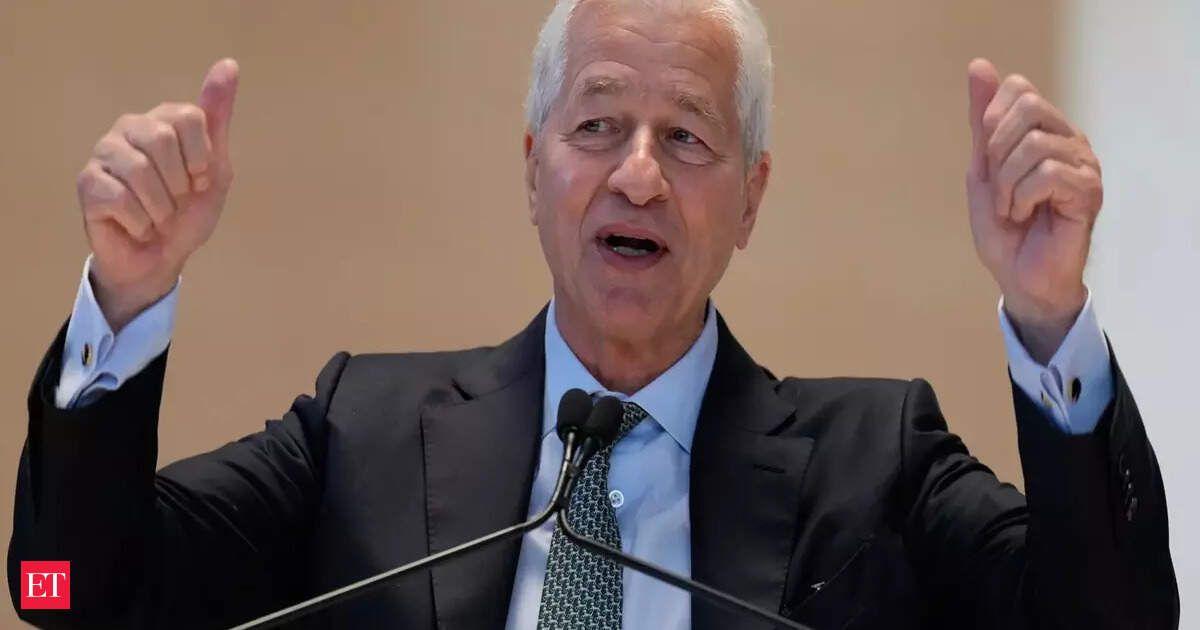
Source: ET
"It's going to affect every application, every job, every customer interface," Dimon stated. "My guess is the developed world will be working three and a half days a week in 20, 30, 40 years, and have wonderful lives"
2
.JPMorgan's AI Implementation Strategy
Dimon's predictions are grounded in JPMorgan's extensive AI deployment. The bank has transformed into what he describes as a "live-fire AI lab," with approximately 2,000 employees dedicated to building AI systems. About 150,000 employees now use large language models weekly for internal document processing, and the bank operates hundreds of AI use cases spanning fraud detection, legal review, reconciliations, and marketing optimization
1
.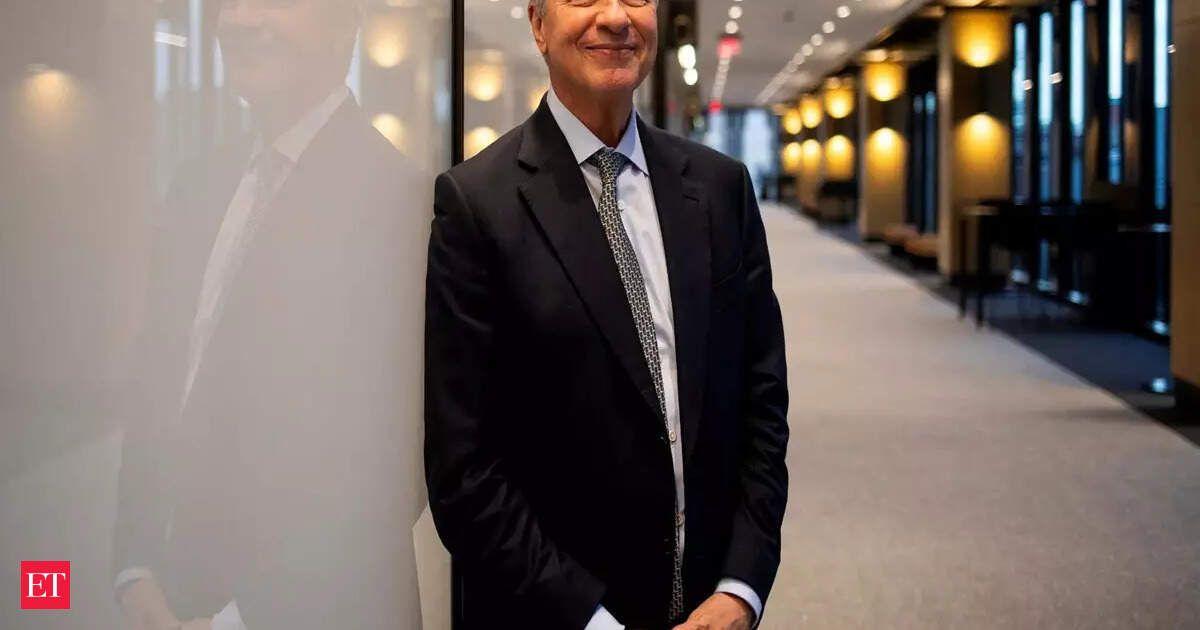
Source: ET
The CEO personally embraces AI technology, using it for writing memos, conducting research, and even drafting his annual Chairman's Letter. JPMorgan has developed internal large language models trained exclusively on the bank's private data, enabling employees to ask complex questions about portfolio companies and receive quick, accurate responses
3
.Employment Strategy Amid AI Transformation
Contrary to widespread concerns about AI-driven job losses, Dimon expects JPMorgan's headcount to remain steady or even increase as AI becomes more deeply integrated into operations. "We always redeploy," he explained, referring to employees whose roles are reshaped by new technology. While acknowledging that AI will reduce workloads in several areas, he emphasized that "it will also create jobs," particularly in data, analytics, and technology infrastructure
4
.This approach contrasts sharply with major tech companies like Amazon, Meta, and Microsoft, which have announced significant layoffs while investing heavily in AI. Amazon alone has eliminated around 14,000 corporate positions this year as part of its AI integration restructuring
4
.Related Stories
Challenges and Economic Realities
Dimon acknowledges that the AI transition won't be without challenges. "It will eliminate jobs. People should stop sticking their heads in the sand," he warned, arguing that companies and governments must prepare comprehensive plans for retraining, income assistance, redeployment, and early retirement to avoid social backlash
1
.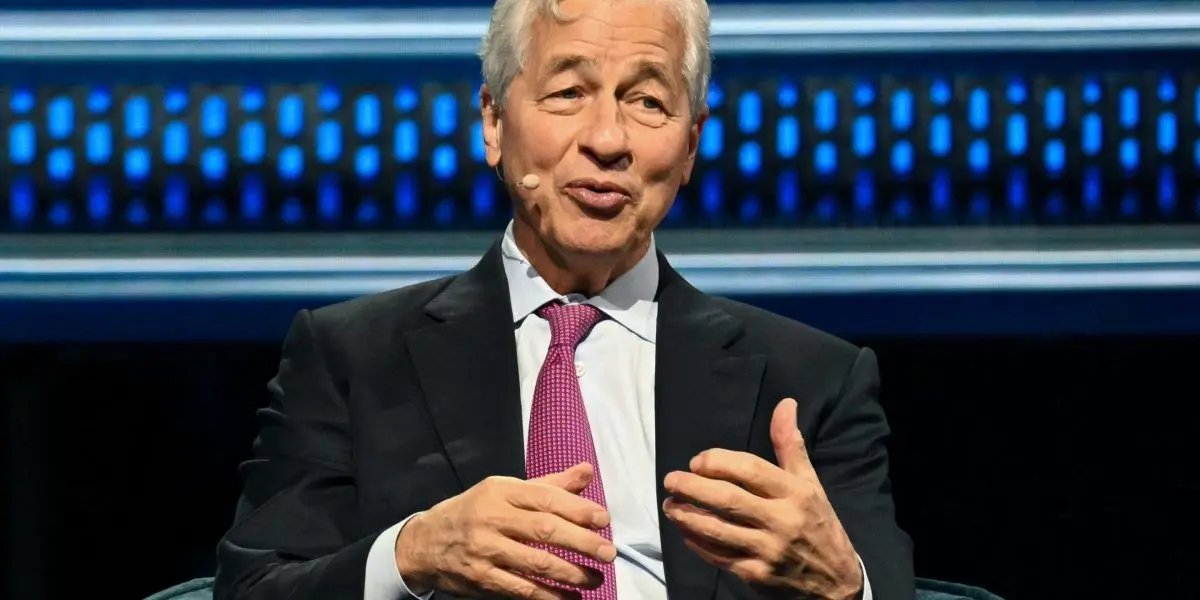
Source: Fortune
He also cautioned that AI's economics differ significantly from the internet boom, noting that AI development is both capital- and power-intensive. Some overhyped projects "won't get the power they need," he said, advising investors to evaluate AI infrastructure projects individually rather than investing broadly in the trend
2
.References
Summarized by
Navi
Related Stories
JPMorgan CEO Jamie Dimon Envisions AI-Driven Future with Shorter Workweeks and Longer Lifespans
26 Nov 2024•Business and Economy

Jamie Dimon warns AI rollout may need to slow down to prevent civil unrest and job disruption
22 Jan 2026•Business and Economy
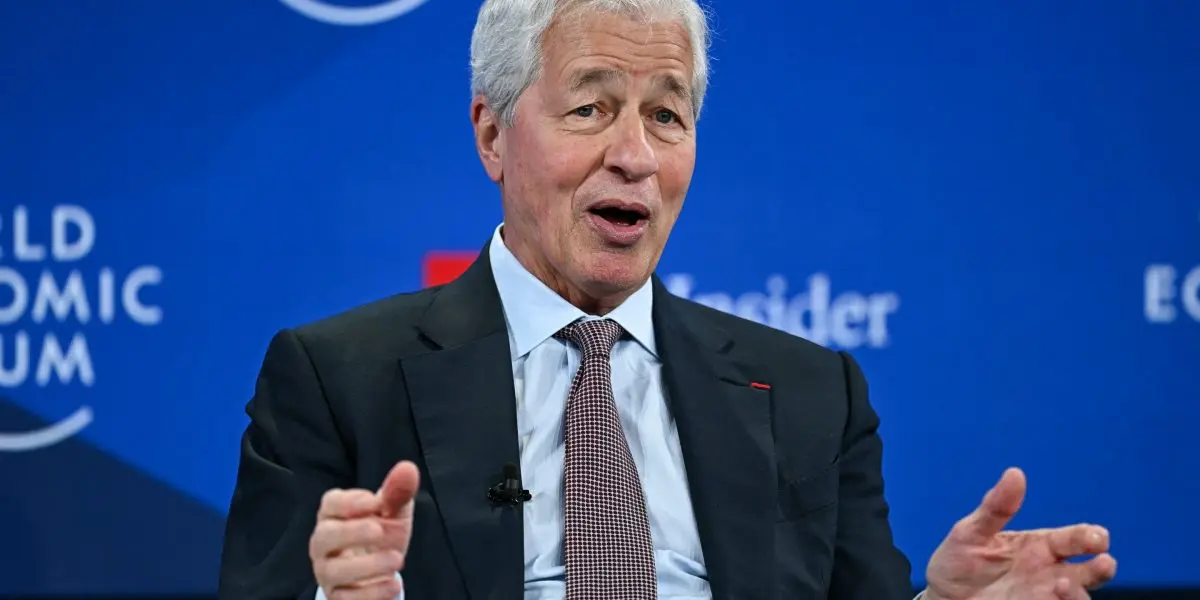
Jamie Dimon's Reality Check on AI: Bubble Concerns, Job Disruption, and Long-Term Potential
15 Oct 2025•Business and Economy
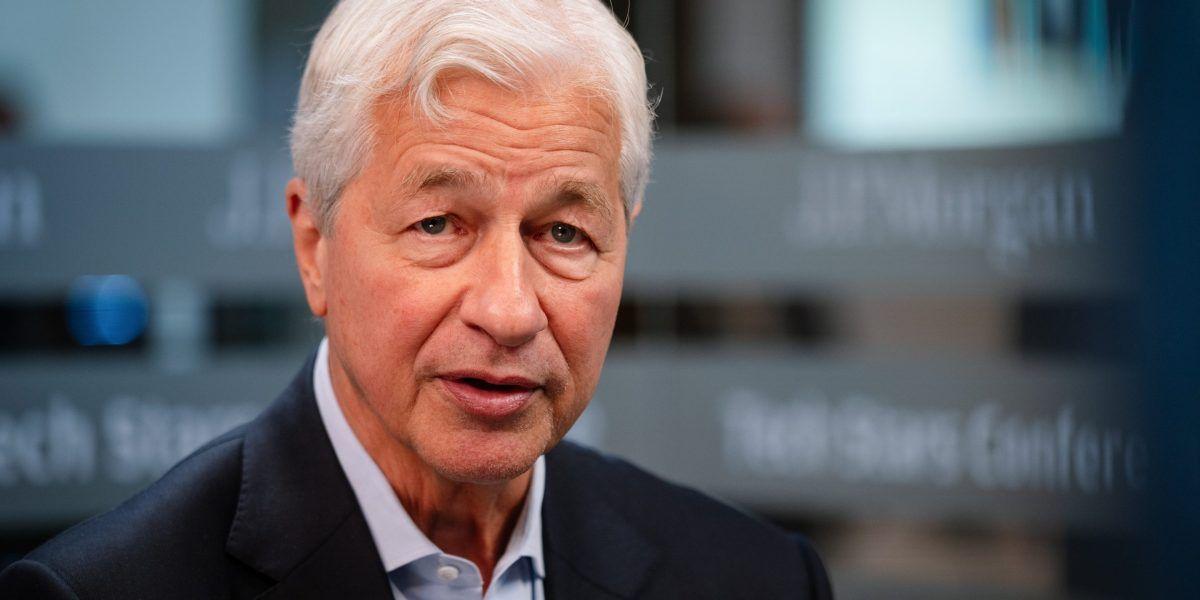
Recent Highlights
1
Google Gemini 3.1 Pro doubles reasoning score, beats rivals in key AI benchmarks
Technology

2
Pentagon Summons Anthropic CEO as $200M Contract Faces Supply Chain Risk Over AI Restrictions
Policy and Regulation

3
Canada Summons OpenAI Executives After ChatGPT User Became Mass Shooting Suspect
Policy and Regulation

